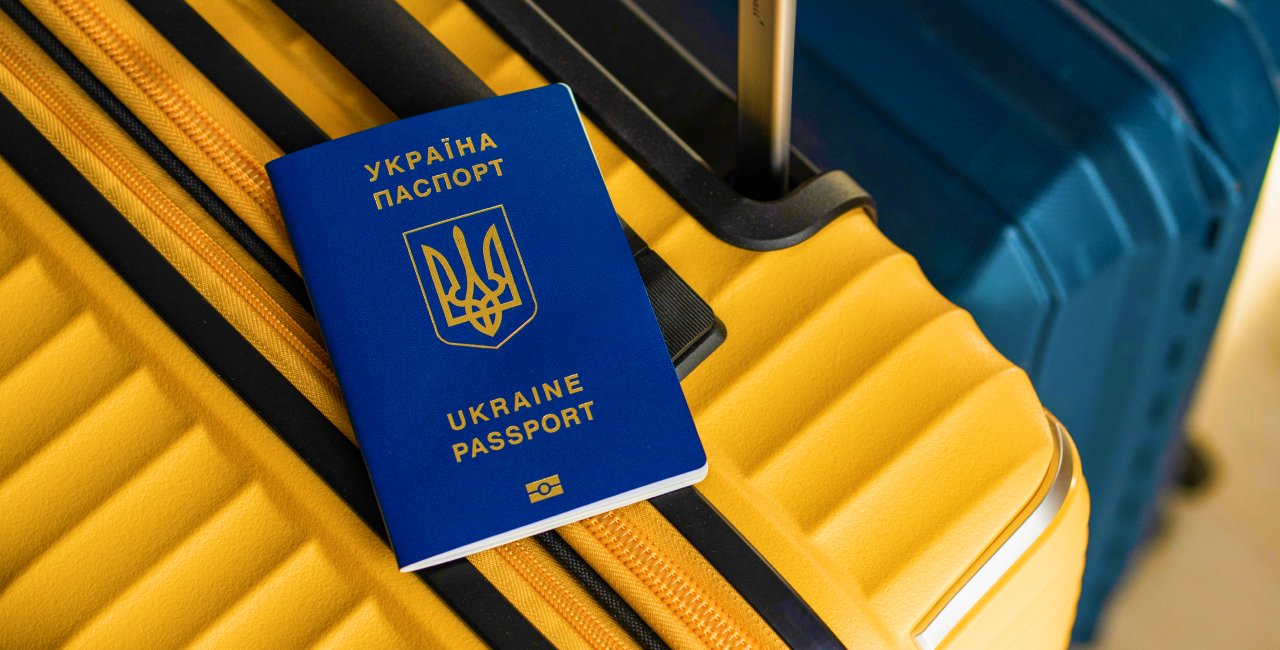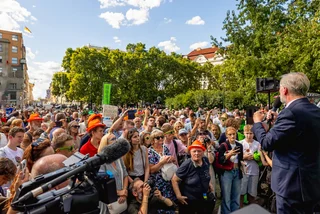Updated with Interior Ministry data.
A far-right party surging in Czech polls has made restricting Ukrainian refugee permits a non-negotiable condition for joining the government after October’s election, potentially affecting tens of thousands of people currently living under temporary protection.
Freedom and Direct Democracy (SPD) leader Tomio Okamura said his party, now polling between 10 and 13 percent, will demand changes to Ukrainian residency permits as a key requirement for coalition talks.
The demands could impact housing, healthcare, and employment access for Ukrainians and may signal broader restrictions on foreign residency.
Few Ukrainian applicants meet long-term residency rules
The debate comes as new Interior Ministry figures show that only about 15,000 Ukrainians, less than a fifth of the roughly 80,000 who applied, currently meet the strict income, housing, and insurance requirements for a new long-term residence permit. More than one-fifth of those eligible live in Prague.
Under SPD plans, only Ukrainians in jobs that Czech citizens cannot demonstrably fill would be allowed to remain. Okamura argued that the influx of Ukrainian refugees since Russia’s invasion has worsened rental housing availability and increased waiting times for doctors.
The ministry data suggests the majority of Ukrainians under temporary protection may not qualify for long-term stays, meaning the pool of residents competing for housing and services is already narrowing.
Under SPD plans, only Ukrainians in jobs that Czech citizens cannot demonstrably fill would be allowed to remain. Okamura argued that the influx of Ukrainian refugees since Russia’s invasion has worsened rental housing availability and increased waiting times for doctors.
SPD plans could limit Ukrainians’ stay and work rights
The party’s growing influence became evident in a newly published poll showing SPD surpassing the incumbent Spolu (Together) coalition in the Moravia-Silesia region. Okamura’s electoral lists include candidates from the Free Party, Tricolor, and PRO parties.
Beyond Ukrainian refugee restrictions, SPD’s non-negotiable priorities include rejecting the EU migration pact and emissions permit system, increasing pension indexation, returning the retirement age to 65, and enabling general referendums on issues ranging from EU and NATO membership to domestic policy.
A cabinet including the SPD would push for citizen votes on international commitments while excluding core rights, the state budget, and key appointments from referendum scope.
The Czech government has not responded to SPD’s proposals, and other parliamentary parties’ reactions remain unclear. The October election outcome will determine whether these measures advance from campaign promises to potential legislation.
How Many Ukrainians Qualify for Long-Term Residence?



